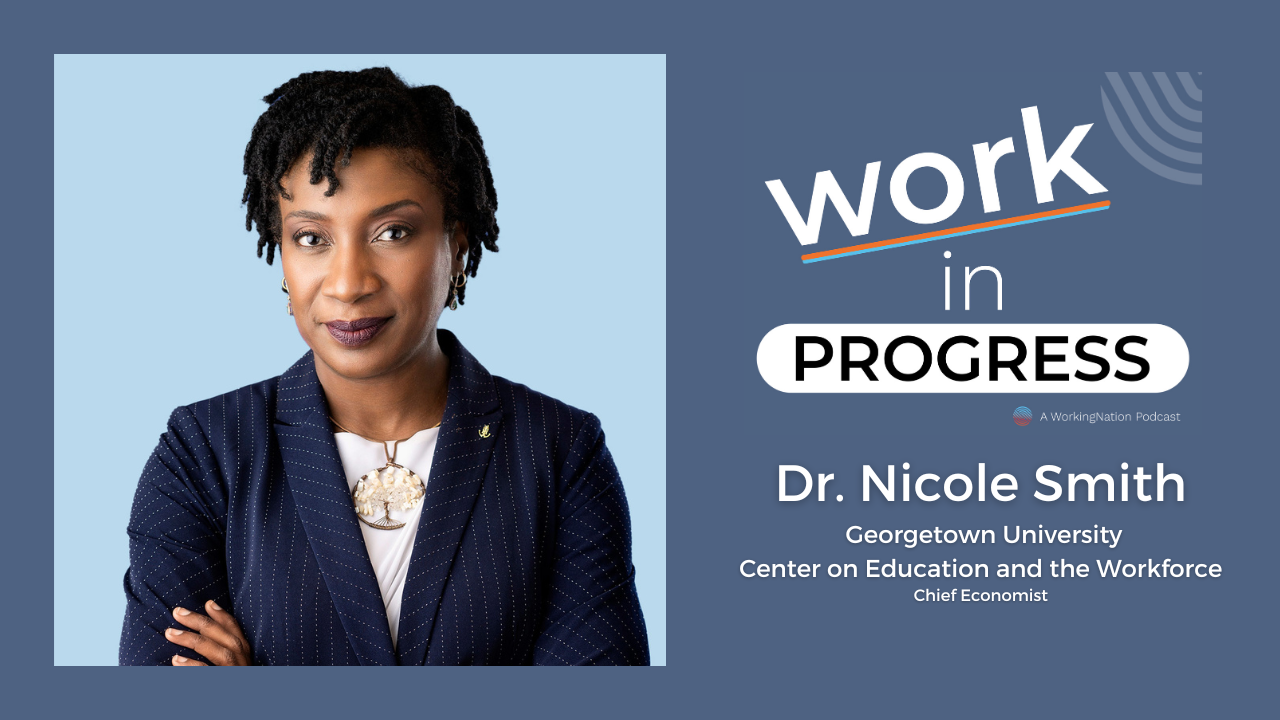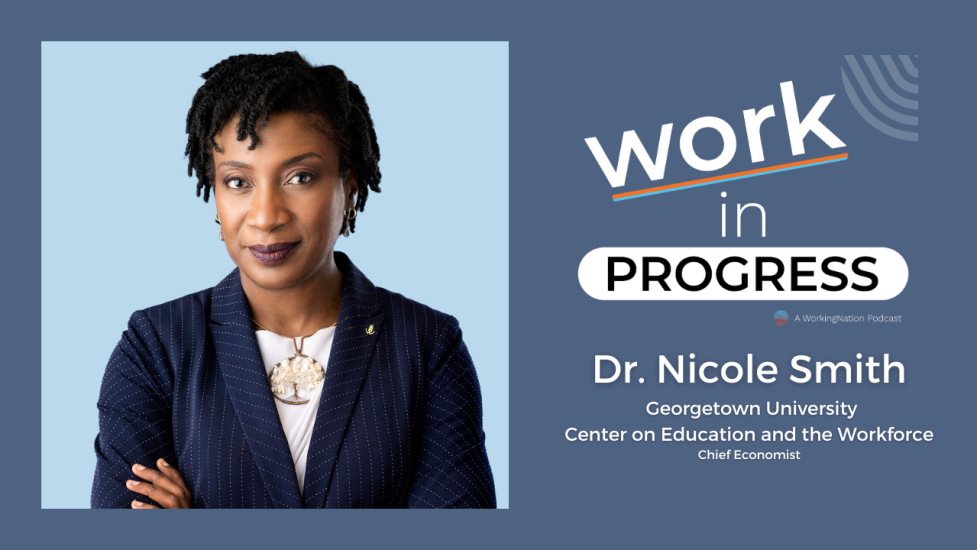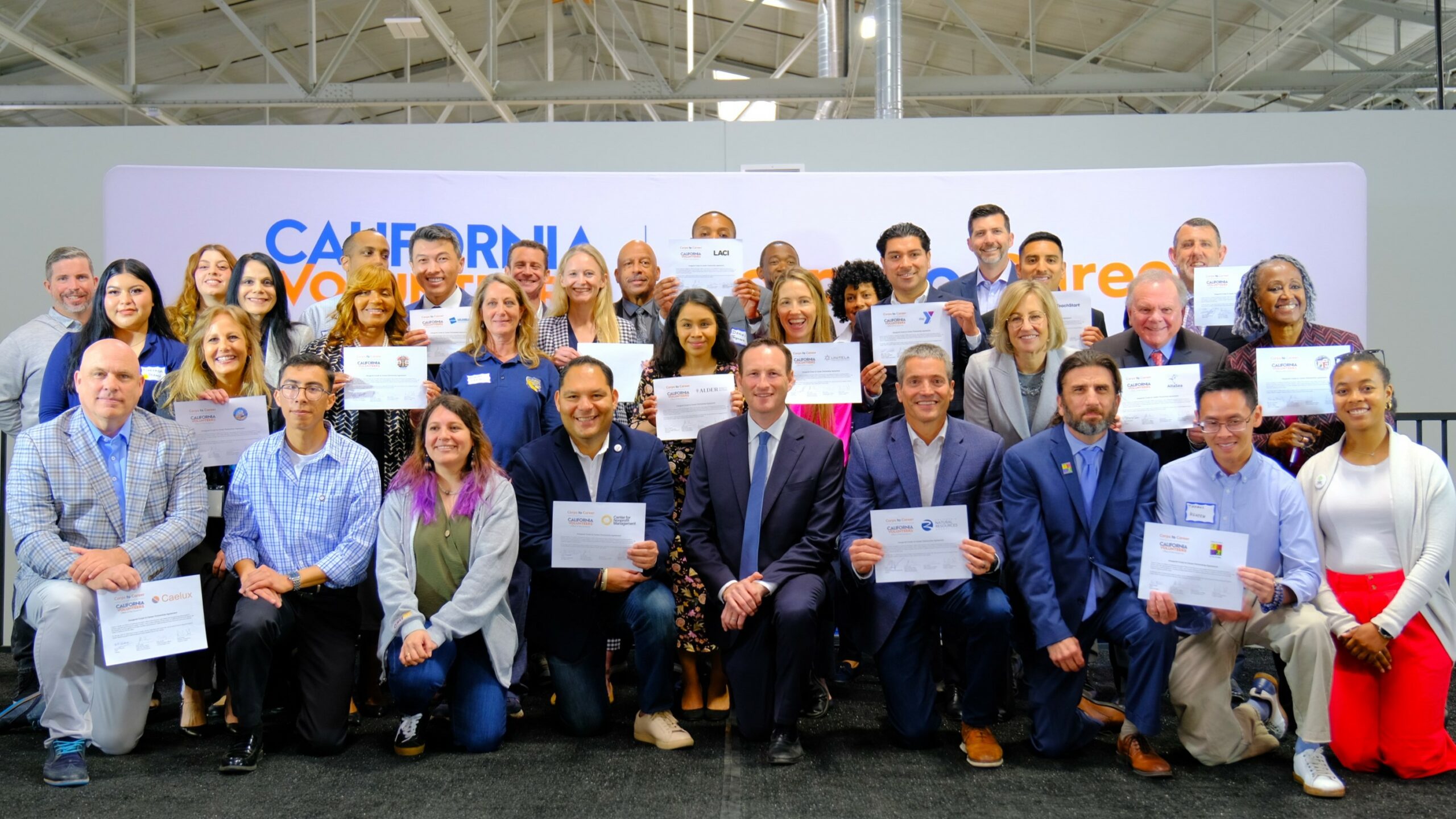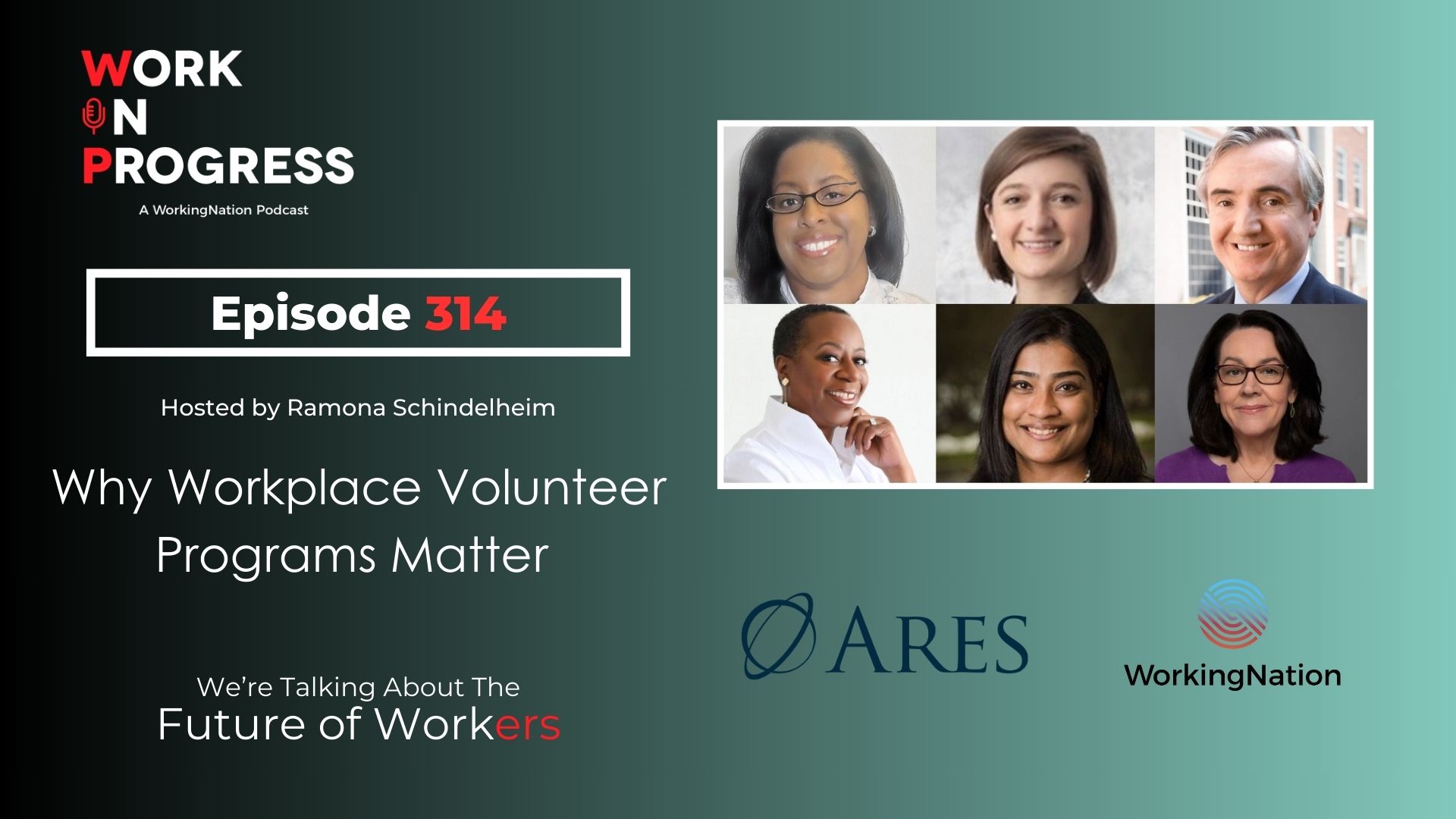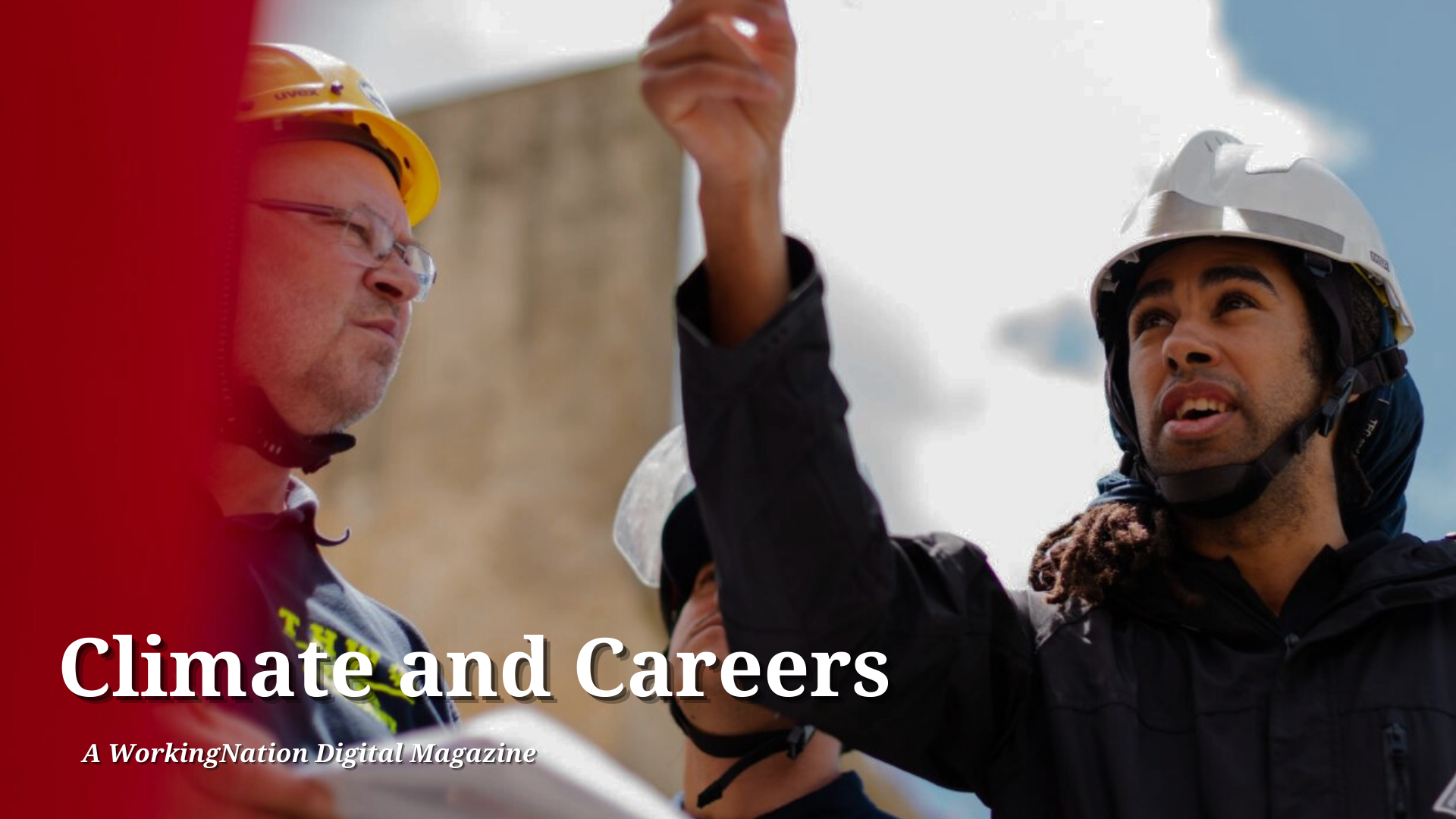Podcast: Play in new window | Download | Embed
Subscribe: Apple Podcasts | Google Podcasts | Spotify | Pandora | Youtube Music | RSS
In this episode of the Work in Progress podcast, I’m joined by Dr. Nicole Smith, chief economist for Georgetown University’s Center on Education and the Workforce and co-author on their new report examining which job skills will be the most in-demand over the next eight years and what kind of education and training will you need to get them.
As we start this conversation, it’s important to know that most jobs already require some kind of post-secondary education and training beyond high school.
“We’re not necessarily talking about a bachelor’s degree only, or a master’s degree, or some sort of technical PhD. We’re actually talking about skills in the middle,” explains Smith. “We’re talking about certificates, test-based certifications, vocational training licenses that deal with these technical jobs, and associate’s degrees, as well.”
Right now, about 68% of the nation’s jobs already require that additional training beyond high school. According to CEW’s After Everything: Projections of Jobs, Education, and Training Requirements through 2031, as we shift even more toward a knowledge-based, tech-based economy, the percentage of jobs requiring more than a high school diploma will soar to 72% by 2031.
CEW researchers project that the U.S. will have 171 million jobs in 2031, an increase of 16 million net new jobs from 2021. During that period, the analysis suggests there will be 18.5 million job openings per year on average, and some 12.5 million of these annualized openings will require at least some college education.
According to the report, these latest projections demonstrate the central role postsecondary education plays in preparing the workforce of the future, “despite the fact that young people increasingly doubt the value of a degree and college enrollments continue to decline.”
Smith says two major factors contribute to the increasing demand for postsecondary education and training – the fastest-growing industries require workers with disproportionately higher education levels compared to industries with slower growth and occupations as a whole are steadily requiring more education as tasks within occupations become more complex.
She says it is important that workers and job seekers look at the skills needed as the nature of work changes and seek out opportunities to stay up-to-date on those skills to stay relevant in the job market and advance their careers.
“All of our data, all of our information, all of our history, points us to the fact that, in order for you to move up in your job, in order for you to get that promotion, managers are requiring you to have higher levels of education, higher levels of skill, and you have to recognize lifelong learning as a thing now, where you go back and you get that certification” or additional training, says Smith.
You can listen to the full podcast here, or you can find it and download it wherever you get your podcasts.
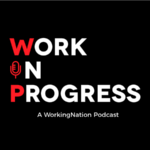
Episode 297: Dr. Nicole Smith, Chief Economist, CEW Center on Education and the Workforce
Host & Executive Producer: Ramona Schindelheim, Editor-in-Chief, WorkingNation
Producer: Larry Buhl
Theme Music: Composed by Lee Rosevere and licensed under CC by 4
Download the transcript for this podcast here
You can check out all the other podcasts at this link: Work in Progress podcasts

